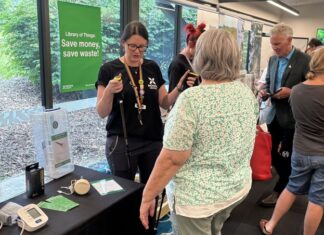Dr Brian Arthur Hoepper of Peregian Beach has been awarded a Medal of the Order of Australia (OAM) in the General Division for service to education.
Here is his story:
Today’s history classrooms are unrecognisable compared with those I experienced as a schoolboy six decades ago. I’m pleased to have played a part in that transformation.
Many of my generation will recall thrilling tales of courage, discovery and conquest, but also the stern instruction to ‘learn the facts’. Facts were paramount, whether they were the number of ships in the Spanish Armada (in Grade 5) or the ‘facts’ of what caused World War 1 (in Grade 10).
Behind the façade of all those facts lurked some disturbing ‘truths’. For example: People could buy slaves, women couldn’t own property, and six-year-old children laboured in coal mines. My interest in history sprang from those ‘truths’. I can sum it up in a small but powerful phrase – ‘Today’s truth, tomorrow’s nonsense’. Put simply, history can teach us that things that people think, believe and do – which seem so natural, important and beyond question – can be challenged and changed, sometimes ending up in the ‘dustbin of history’. Sadly, in the examples of slavery, women’s rights and child labour, change is yet to be achieved in many parts of our world.
Today, history students investigate the challenges and changes of the past. They use an ‘inquiry learning’ approach – posing questions, studying historical sources of evidence (old newspapers, photos, speeches, statistics, maps and objects), debating ideas and proposing answers to questions such as ‘In the Industrial Revolution in Britain, why did child labour in mines begin, continue and finally end?’ Their studies inevitably raise value-laden questions about progress, power, fairness and reform.
Perceptive people in the past asked critical questions about child labour, women’s status and slavery. They asked ‘What’s really going on here; is it a good thing; if not, how can it be changed; if it is a good thing, how can it be cherished and maintained?’. Studying those critical thinkers from the past can help young students to emulate them. With an eye on their future as adult citizens, students can start to ask ‘What’s really going on here? etc’ about modern-day phenomena. Climate change, immigration, treaty, Ukraine, the republic, housing affordability and Artificial Intelligence spring to mind.
That’s the great value of historical education for a modern, democratic society.
My career gave me many opportunities to promote this approach to historical teaching and learning. As an academic at QUT, I taught courses in history curriculum for student teachers. Beyond the university, I found an extraordinarily supportive professional association – the Queensland History Teachers Association QHTA – and collaborated with members in almost all my work.
Together we were members of the committee that wrote the History syllabuses for Queensland schools and provided professional development throughout the state. Over a period of more than 40 years, I co-authored and led teams of teachers who produced nine textbooks that inducted thousands of history students into inquiry learning.
At the university level, I co-edited a series of textbooks for the future teachers of Humanities and Social Sciences, collaborating with members of the influential Social and Citizenship Educators Association of Queensland SCEAQ
I left QUT in 2002 to work as an independent curriculum adviser. In the years following I was the Queensland member of the team that wrote the Australian Curriculum: History, and was a member of the National Centre for History Education based at Monash University.
Throughout, I maintained my links with QHTA, having served as President and been made a life member and patron.
Not surprisingly, a love of history had steered me towards politics, particularly the politics of change. In the ‘Moonlight State’ era of Queensland politics, I convened the anti-gerrymander activist group Citizens for Democracy, was spokesperson for Queensland Academics for Human Rights and became the convenor of the first Greens branch in Brisbane. My only ever stint in the Brisbane Watchhouse followed my arrest at a political rally.
My partner Kathleen and I moved from Highgate Hill to Peregian Beach in 2009, and we appreciate the special qualities of this environment. I treasure my membership of the very welcoming Noosa Masters Swimming Club, where I was club captain for four years and am now a life member. For the past five years, my Thursdays have been special as I rehearse at the Noosa Men’s Shed with The Hip Replacements, our band with endearing aspirations of stardom! And two very different but equally enjoyable book clubs keep me immersed in the wonders of literature.
I’ve found opportunities for community engagement through the energetic Peregian Beach Community Association and through my term as deputy chair of the board of Zero Emissions Noosa (ZEN Inc), taking on ‘the greatest moral challenge of our times’, a challenge reinforced dramatically by recent unprecedented weather events. That motivates my continuing work within the local Greens branch.
I value the award of the OAM, particularly as it creates an opportunity to publicise and celebrate the unique value of a historical education. Importantly, it’s essential to remember that my innovative role would have counted for nothing if the impetus for change had not been shared and propelled by fine educators within QHTA and the countless other history teachers throughout the state. They continue to expertly and enthusiastically guide their students through the challenge of interpreting the past, understanding the present and envisaging a fair and sustainable future through the lens of historical inquiry.








